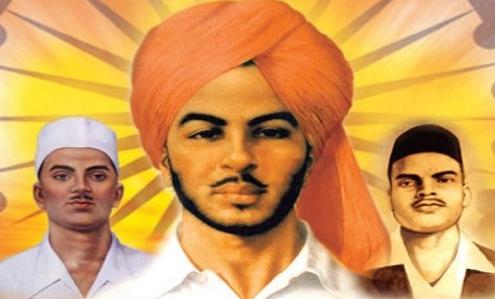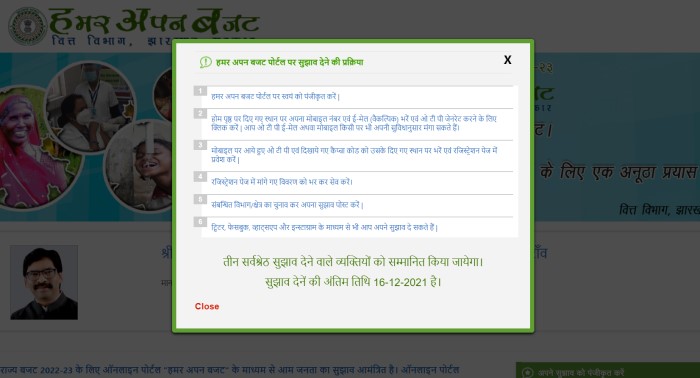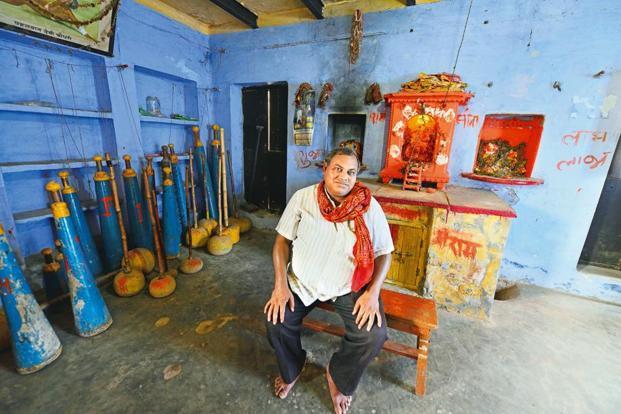Updated By: LatestGKGS Desk
Martyrs' Day 2018, In Memory Of Indian Freedom Fighter Shaheed Bhagat Singh

Martyrs' Day 2018, In Memory Of Indian Freedom Fighter Shaheed Bhagat Singh
Martyr’s Day or Shaheed Diwas is observed every year on March 23, in memory of three brave freedom fighters who sacrificed their lives for India's freedom struggle namely Bhagat Singh, Shivram Rajguru, and Sukhdev were hanged till death on March 23, 1931, in Lahore jail by the British Government in India.
In memory of the Indian freedom fighters on their 87th death anniversary, let’s discover some of the amazing facts about one of the most courageous freedom fighter Shaheed Bhagat Singh.
Bhagat Singh an Indian Independence hero was born on 28th September 1907, in the Lyallpur district of Punjab Province of British India (Now in Pakistan).
Bhagat Singh is a well-known freedom fighter, who was an Indian revolutionary socialist. He played a vital role during the Indian freedom struggle from British Government in India.
Bhagat Singh was greatly influenced to free India, at an early age of 8 years, when children usually play with toys. He always questioned his father why don’t we produce pistols & guns in our farming fields to make Britons run away from our country.
Bhagat Singh always loved & respected Mahatma Gandhi but not for his ‘Non-Violence’ philosophy of freedom fighting. On 13th April 1919, when ‘Jaliawala Bagh Massacre’ incident took place, he was just 12 years old, which deeply moved him witnessing the death & injuries of thousands of Indian people's.
Bhagat Singh took education from DAV High School, Lahore. He had a linguistic proficiency in English, Hindi, Urdu and Punjabi. He was a great student and dramatist. In 1926, he also founded Indian National Youth Organisation during his college days.
Bhagat Singh in 1926, joined the Hindustan Republican Association (HRA), led by extremist & courageous leaders, such as Chandrashekhar Azad, Ram Prasad Bismil and Shahid Ashfaqallah Khan. Later they called Hindustan Socialist Republican Association (HSRA).
In 1928, when Lala Lajpat Rai died due to ‘Lathi Charge ‘while protesting against ‘Simon Commission’, Bhagat Singh along with Rajguru, Sukhdev, Chandrashekhar Azad among other revolutionaries of HSRA took historic revenge by shooting British Police Officer ‘John P Saunders’ on 17th December 1928 in Lahore although, they conspired to kill British Police Superintendent James Scott. Chandrashekhar Azad also shot Indian Police Constable Chanan Singh who tried to constrain Bhagat Singh and Rajguru escape.
In 1929, Bhagat Singh planned to explode a bomb inside the Central Legislative Assembly; the main intention was to protest against the Public Safety Bill and the Trade Dispute Act, which was rejected by the Assembly.
Bhagat Singh and Batukeshwar Dutt steered the plan and exploded the bomb in the Assembly, although they both got time to escape still they allowed themselves to get arrested so that they could use court appearances as a stage to publicise their cause.
Bhagat Singh along with Shivram Rajguru, and Sukhdev among other revolutionaries faced several court trials and were sent to the jail where they made hunger strike and other protests to provide good facilities to prisoners.
On 1 May 1930, the Viceroy, Lord Irwin, declared an emergency and introduced a special tribunal composed of three high court judges to fasten the case proceedings; keeping in mind as a threat of the sympathy Bhagat Singh and other revolutionaries were gaining in spite of being in prison.
Bhagat Singh along with Shivram Rajguru and Sukhdev were hanged till death on March 23, 1931, in Lahore jail by the British Government in India.


